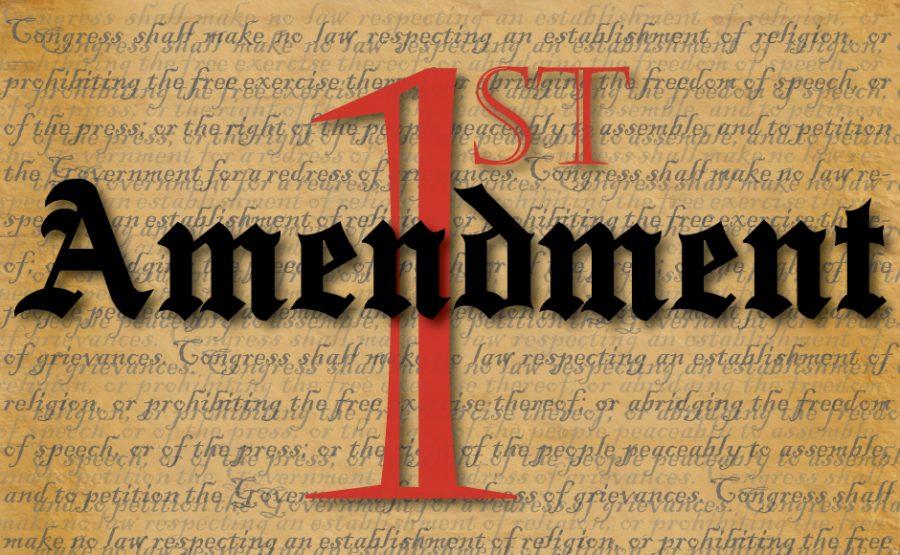The Future of Section 230
How important is your freedom of speech on the Internet?
April 28, 2022
Found within the Communications Decency Act (CDA) of 1996 is Section 230, a law absolving internet service providers (ISPs) and any online service that publishes third-party content, including social media sites, from the responsibility of their users’ posts. They may also choose to remove content that is “obscene, lewd, lascivious, filthy, excessively violent, harassing, or otherwise objectionable.” As private entities, the First Amendment does not apply to them or their users, therefore, they are entitled to censor.
Even yet, Section 230 protects users’ freedom of expression as well as encourages innovation and competition online. Critics of the law have blamed it for bringing about issues such as “harassment, hate speech, disinformation, violent content, child sexual abuse material, and nonconsensual pornography.” Any major changes to Section 230, however, including repealing the law altogether, could lead to some serious consequences.
There are several reasons why people want to repeal this law; one being it enables multiple forms of illegal or harmful content online. Critics have consistently quoted Backpages.com, a site accused of human trafficking, as an example. This was before the passing of the Allow States and Victims to Fight Online Sex Trafficking Act and the Stop Enabling Sex Traffickers Act (FOSTA-SESTA) in 2018, an exception to Section 230 that allows any site engaged in online sex trafficking to be prosecuted.
Others have criticized the law for its ability to censor—or lack of censoring—certain content. According to a study conducted by Pew Research, 90% of Republicans believe social media sites “intentionally censor political viewpoints” that they find offensive, while only 19% of Democrats thought this to be very likely. However, a New York University report provides data finding no anti-conservative bias on sites like Facebook, Twitter, and YouTube, although it did reveal right-leaning sources frequently outperform left-leaning sources in terms of shares and engagement, according to the Intellectual Freedom Blog from The Office for Intellectual Freedom of the American Library Association.
Democrats, including President Biden, have also promoted the repealing of this law, but for the opposite reason. They believe social media companies are not restrictive enough, “allowing or even fostering extremist views on their platforms” as well as failing to sufficiently moderate harmful political speech, such as what took place on sites like Gab and Parler before the attack on the U.S. Capitol on January 6, 2021.
If Section 230 was repealed, a number of problems would likely arise. First, the threat of getting into legal trouble would drive online services to take a more limiting approach to content moderation—way more than they did before. Without the protection of Section 230, many smaller corporations would also have to shut down or look to be picked up by larger ones. Content moderation simply poses overwhelming obligations that they do not have the capacity for like larger corporations do, nor is it likely that smaller online corporations have the resources to regularly protect themselves against lawsuits. This is exactly what happened when Congress amended Section 230 in 2018 to make platforms responsible for promoting speech related to prostitution or sex trafficking. Rather than be more cautious when moderating their personal advertisements page, Craigslist shut it down, as did many other websites that offered similar services.
Really, repealing Section 230 would place users’ freedom of expression at risk as well as suppress competition. But, given the current disputes about the law, not taking any action isn’t a probable option.
Section 230 reform should seek to protect users’ freedom of expression and innovation while holding online companies responsible for failure to remove illegal or harmful content. One solution provided by the Information Technology & Innovation Foundation is “selectively expanding federal criminal law” to address emerging problems. For example, revenge porn, “the distribution of sexually explicit images without the subject’s consent,” is illegal in most states but has yet to be made illegal at the federal level. With the implementation of this solution, online companies would be held liable for encouraging users who engage in this type of behavior. This is just one out of the many proposals for Section 230 reform.
When it comes to freedom of speech on the Internet, Section 230 should be one of the first things we look to preserve, while any changes to the law should require careful consideration.








